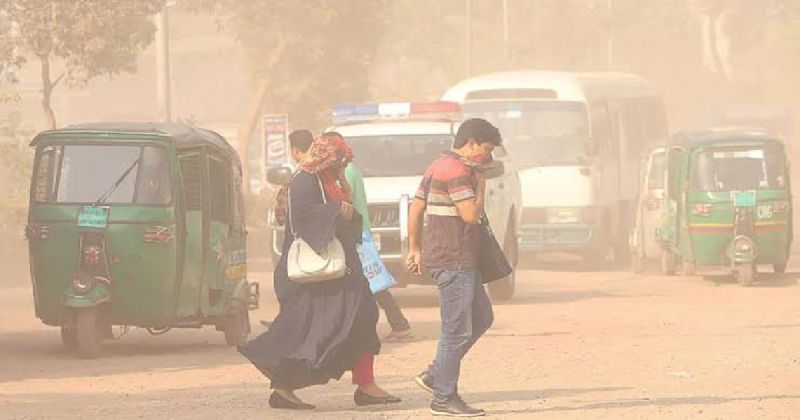- Bangladesh stocks end week higher on upbeat mood |
- BDR name will be restored, army won't be used for politics: Tarique |
- Hili land port highway upgrade delayed again, cost Tk 588cr up |
- Tarique vows quick execution of Teesta Master Plan if elected |
- How Undecided voters May Decide the Election |
Dhaka’s air remains ‘unhealthy’ Thursday morning

Air pollution forces Dhaka people to cover their noses with clothes. UNB
Dhaka, Feb 2 - Dhaka's air quality has remained 'unhealthy' this morning. With an air quality index (AQI) score of 155 at 9:04 am, the capital of Bangladesh ranked 16th on the global list of cities with the worst air quality.
An AQI between 101 and 200 is considered 'unhealthy', particularly for sensitive groups.
India’s Mumbai, Pakistan’s Lahore and Thailand’s Bangkok occupied the first three spots on the list, with AQI scores of 207, 202 and 198, respectively.
An AQI between 201 and 300 is said to be 'poor', while a reading of 301 to 400 is considered 'hazardous', posing serious health risks to residents.
In Bangladesh, the AQI is based on five criteria pollutants -- Particulate Matter (PM10 and PM2.5), NO2, CO, SO2 and Ozone.
Dhaka has long been grappling with air pollution issues. Its air quality usually turns unhealthy in winter and improves during the monsoon.
Air pollution consistently ranks among the top risk factors for death and disability worldwide. Breathing polluted air has long been recognised as increasing a person’s chances of developing a heart disease, chronic respiratory diseases, lung infections and cancer, according to several studies.
As per the World Health Organization (WHO), air pollution kills an estimated seven million people worldwide every year, largely as a result of increased mortality from stroke, heart disease, chronic obstructive pulmonary disease, lung cancer and acute respiratory infections. - UNB

